HISTORY
The Legacy Veterans Institute was established to honor and serve those who have dedicated their lives to protecting and defending the nation. Born from the needs of veterans across generations, the Institute focuses on providing essential support and advocacy for veterans, active-duty service members, and military families. Our work builds on a century of commitment to improving the lives of those who served, from tackling critical health care issues to fostering responsible citizenship and leadership among the next generation.
The Legacy Veterans Institute draws on lessons learned from their century-long fight for veterans' rights and benefits. From the landmark GI Bill that transformed veterans' access to education to the continued push for toxic exposure relief, the Institute is committed to advocating for policies and programs that meet the needs of today’s veterans, ensuring they receive the support they deserve.
Through our outreach, partnerships, and educational programs, we strive to continue the important work of improving and strengthening the country veterans have worked so tirelessly to defend.
Below is a timeline highlighting key milestones and initiatives from our work and the broader veterans’ community:
1919-1930s: Formation and Early Advocacy
1919: The Legacy Veterans Institute is founded to provide a dedicated space for veterans of World War I to access support services. The focus is on healthcare, compensation claims, and legal aid.
1920s: LVI partners with emerging veterans organizations to lobby for the creation of veterans’ benefits programs and improved treatment for those who served. Establishment of legal services to help veterans with claims related to service-connected disabilities.
1924: The institute introduces an outreach program to ensure veterans’ experiences are documented and recognized, promoting educational efforts to preserve their legacies.
1940s: World War II Expansion
1941-1945: During World War II, the institute increases its efforts to support returning veterans with mental health services and career re-entry programs. Collaboration with other organizations to streamline the process of receiving veterans' benefits becomes a top priority.
1944: The GI Bill Advocacy Committee is formed to help World War II veterans navigate the new educational and housing benefits available under the GI Bill.
1950s-1960s: Post-War and Korean War Support
1950-1953: With the Korean War, the institute expands its efforts to address the influx of new veterans. Establishment of support systems for healthcare, legal aid, and job placement.
1960s: Expansion of the institute’s reach into mental health support, especially as more veterans of earlier conflicts struggle with undiagnosed post-traumatic stress disorder (PTSD).
1970s: Vietnam War Veterans
1965-1975: The Vietnam War prompts the institute to establish a specialized committee to address the unique needs of Vietnam veterans. This includes advocacy for those exposed to Agent Orange, providing psychological support, and assistance with reintegration into civilian life.
1973: The Vietnam War Veterans Committee is set up to handle claims related to Agent Orange and PTSD, marking a shift towards more specialized support.
1980s: Mental Health and Legal Aid
1980s: The institute launches initiatives to advocate for the formal recognition of PTSD as a condition related to military service. The Veterans Mental Health Program begins offering specialized care for veterans struggling with psychological wounds from past conflicts.
1989: Legal resources expand to help veterans seek compensation for PTSD-related claims, working in tandem with newly formed veterans’ courts to handle appeals and legal issues.
1990s: Expanding Outreach to Families
1990s: The Legacy Veterans Institute expands its services to include family support programs, focusing on assisting spouses and children of veterans. The Veterans Family Assistance Program is created to help families manage the challenges of having a loved one deployed or returning from service.
1997: The institute creates a network of businesses and academic institutions that offer job training, career counseling, and educational opportunities for veterans and their families.
2000s: Post-9/11 Veterans and Health Advances
2001-2009: Following the 9/11 attacks, the institute launches the Post-9/11 Veterans Program, which focuses on providing aid for veterans from the wars in Afghanistan and Iraq. Specialized programs for veterans of these conflicts focus on PTSD, reintegration into society, and dealing with combat injuries.
2007: Partnership with the Wounded Warrior Project helps veterans recover from physical and psychological injuries sustained in combat.
2010s: Healthcare and Technology Advancements
2014: The Comprehensive Care Program expands, focusing on improving veterans’ access to healthcare services, particularly in the realms of mental health and long-term care.
2017: The Forever GI Bill leads to the creation of advocacy programs that assist veterans in utilizing education benefits that no longer expire, ensuring veterans can pursue education opportunities throughout their lifetime.
2019: The institute partners with healthcare organizations to provide telehealth services for veterans, expanding access to healthcare, especially in rural areas.
2020s: Modernization and Legal Advancements
2020: The Legacy Veterans Institute adapts to the challenges presented by the COVID-19 pandemic by launching a Veterans Digital Support Network, which offers online counseling, virtual career support, and mental health services for veterans unable to visit in person.
2022: The institute strengthens its legal services, focusing on new toxic exposure laws like the PACT Act, which provides additional support for veterans affected by burn pits and other environmental hazards during service.
2023-2025: The institute continues to work on advancing veterans’ rights with a focus on the legal, healthcare, and educational support systems. Collaboration with tech companies to provide more modern solutions to address veterans' mental health needs and employment opportunities is a key focus.

Headquarters:
980 9th Street, #780, Sacramento, CA 95814
916-604-8067
info@legacyveterans.org


Los Angeles Office
1100 Glendon Ave, #580, Los Angeles, CA 90024
213-260-1719
Houston Office:
11757 Katy Fwy, #990, Houston, TX 77079
713-832-1350
